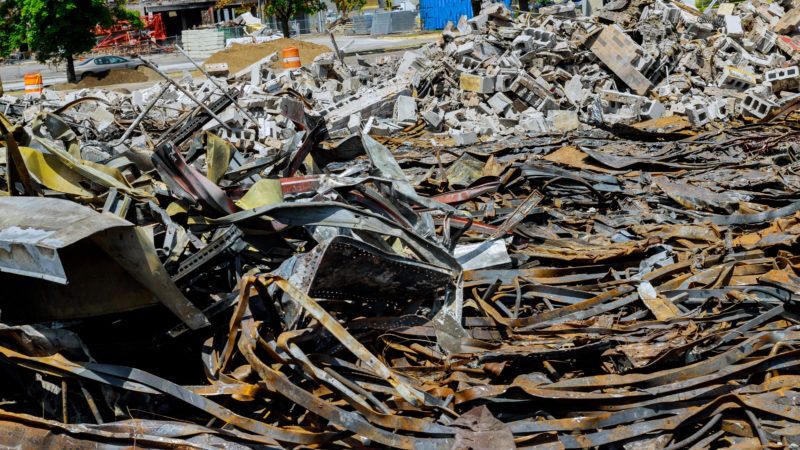Minneapolis Tells Residents With Riot-Wrecked Buildings They Can't Clean Up Until They've Paid Their 2020 Property Taxes in Full
After failing at the one thing people think they need from government, Minneapolis is getting tough on making damaged citizens pay up.

[UPDATE: The city of Minneapolis this afternoon announced that it was going to cease requiring the paying of property taxes to get demo permits, the practice this following story discusses. The original story follows as initially posted.]
The city of Minneapolis suffered around 1,500 heavily damaged buildings, with 150 set fire to and dozens burned to the ground. The city suffered half of a billion dollars in estimated damages from the riots following the police murder of George Floyd.
Defenders of government's necessity argue that the protection of life and property is allegedly one of the goods government uniquely provides and for which we pay taxes, yet Minneapolis demonstrably did a terrible job on this task. But whether the government delivers on what it promises, it will always be diligent in insisting we pay for those promises.
Today the Minneapolis Star Tribune takes a long look at one reason why the aftermath of rampant destruction, as yet untended to, continues to haunt the city. As social scientists understand, such riot damage can have dire effects on development and poverty in an area for decades down the line. But one city policy in Minneapolis is ensuring, for now, that even early faltering attempts at clearing the rubble can't move forward in many cases.
You see, you can't rebuild or do anything useful with your land until you've cleared off the rubble left on it by the rioting. And you can't do that without a permit, of course. Minneapolis is a city of order, after all.
And you can't get the permit without paying off your 2020 property tax bill in full. As a result, only around 20 wrecked buildings have been demolished, according to the city.
The city, enforcing a state law at its discretion, is holding this demand for a full tax payment over the head of property owners trying to get themselves and the city back to something approximating normal. Owners of destroyed stores are finding they can't even get an estimate as to what the cleanup will cost from contractors without the permit, though the paper reports costs ranging from $35,000 to as much as $400,000 for a strip mall just to get debris cleared.
The average amount owners of destroyed property owe for the second half of their 2020 tax payments is $25,000, which the city demands be laid on the line before any step toward normalcy can happen. And owners of commercial properties are now without their only source of the income with which to pay that property tax bill, as one former restaurateur lamented to local ABC station KSTP.
St. Paul, Minneapolis' sister city, is choosing not to add injury to insult. It is letting residents go ahead and clean up their destroyed property. Hennepin County, which has the legal responsibility for enforcing the state law, told Minneapolis it would not interfere should Minneapolis choose to do the decent thing and give citizens a chance to start over, and make the city look less like a pile of rubble (though, as the Star-Tribune story relates, city officials feel they've gotten conflicting signals from the county on this point).
Minneapolis City Councilmember Andrew Johnson told the Star-Tribune that he agrees it is "outrageous" to demand full property tax payments just to get a demo permit, but his suggested solutions are more complicated than just going ahead and giving out the permits, including asking "city workers to look for evidence that a property is a public health hazard, which would qualify it for expedited demolition and waive the property tax requirement. The city also has told property owners they don't need to survey their lots as part of the demolition process, which can save them a few thousand dollars…."
St. Paul pharmacy owner Jim Stage used his city's saner policies to clean up and told the Star-Tribune that he:
would have thought twice about rebuilding in St. Paul if the city had asked him to prepay $11,793 in property taxes when he applied for a demolition permit in June. "It would have been a little insulting, considering the circumstances," said Stage, who paid $65,000 to remove the rubble left from the destruction of Lloyd's Pharmacy. "I'd say, 'Do you really want us to build back in your city?' That's how it makes you feel."
The state legislature neglected to officially change that aspect of state law earlier this month, but the actions of sister city St. Paul and Hennepin County show that Minneapolis should not kick the blame upstairs for enforcement actions that further harm its citizens and slow down any attempt to get the city's commercial sector back on its feet.


Show Comments (86)